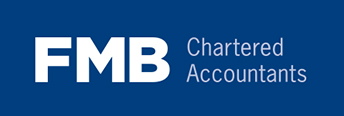The forthcoming presidency of Donald Trump in the United States looms large over business in Ireland, and is reflected in the current employment market.
The latest employment monitor from Morgan McKinley shows a 14.6% decline in professional job openings for the fourth quarter of last year, as multinationals exercise caution in their hiring strategies.
“The end of 2024 was marked by global economic caution, exacerbated by the US presidential election and ongoing concerns about corporate tax and trade policy changes,” said Trayc Keevans, Global FDI Director, Morgan McKinley Ireland.
“Multinational firms in Ireland, particularly in technology and life sciences, scaled back hiring amid these uncertainties.”
Despite the overall decline, the Irish employment market remained active with sectors and disciplines such as regulatory compliance, financial services, and emerging technologies like AI and automation showing resilience, offering targeted opportunities for skilled professionals.
The monitor showed that the number of professional job seekers rose by 6.8%, increasing competition for fewer roles.
It also reveals that the push for more onsite work has clashed with candidates’ desire to maintain flexible arrangements, creating tensions between employers and employees.
Rising living costs and the ongoing housing crisis, particularly in Dublin, have exacerbated this stand-off, Ms Keevans said.
The technology sector saw a sharp rise in demand in the final quarter of 2024, driven by end-of-year project deadlines and preparations for the EU’s Digital Operational Resilience Act (DORA).
Expertise in automation, AI, and regulatory compliance was in high demand, especially in Dublin.
“This shift towards highly specialised roles highlights a continued imbalance between job seekers and available positions, reflecting employers’ focus on critical skills,” Ms Keevans said.
“Looking ahead, AI and automation are expected to drive further growth as companies accelerate digital transformation initiatives.”
In financial services, the monitor showed the introduction of DORA heightened the focus on operational and third-party risk, spurring demand for risk, and compliance professionals.
While fund accountants were in strong demand for the last quarter of the year, the broader sector continues to face challenges in attracting emerging talent.
Ms Keevans said the ongoing housing crisis has exacerbated these issues, prompting some younger professionals to emigrate for better opportunities. “To counteract this trend, employers are offering enhanced benefit packages, as they strive to retain skilled employees amid a competitive market.”
Similarly, the accounting and finance sector struggled with talent shortages, particularly for newly qualified accountants and tax specialists.
The life sciences sector remains project-focused, with hiring concentrated on validation, quality control, and regulatory roles.
“Many professionals are moving from the food sector to pharma in search of better working conditions and higher pay,” she said. “While this benefits the pharmaceutical industry, it leaves the food sector more challenged with skills shortages, particularly in production roles.”
The engineering sector maintained stable hiring levels, buoyed by ongoing infrastructure and validation projects and a growing focus on automation.
In supply chain and procurement, demand for expertise in risk management, digital transformation, and Lean methodologies remains steady.
In business support, recruitment activity slowed in Dublin but remained steady in other regions.
“Employers sought candidates with strong technical and organisational skills to handle immediate operational needs,” she said.
Human resources hiring expanded, particularly for Employee Relations specialists and HR Business Partners, as companies sought to manage workforce complexities.
In construction, robust demand for quantity surveyors and engineers was supported by government investment in infrastructure projects. However, the monitor shows the sector continues to face significant challenges, including rising labour costs, skills shortages, and delays in housing completions due to resource constraints.
Ms Keevans said, employers are under pressure to meet ambitious infrastructure goals while managing persistent workforce shortages.
Article Source – Irish employment market resilient despite US election caution – RTE






